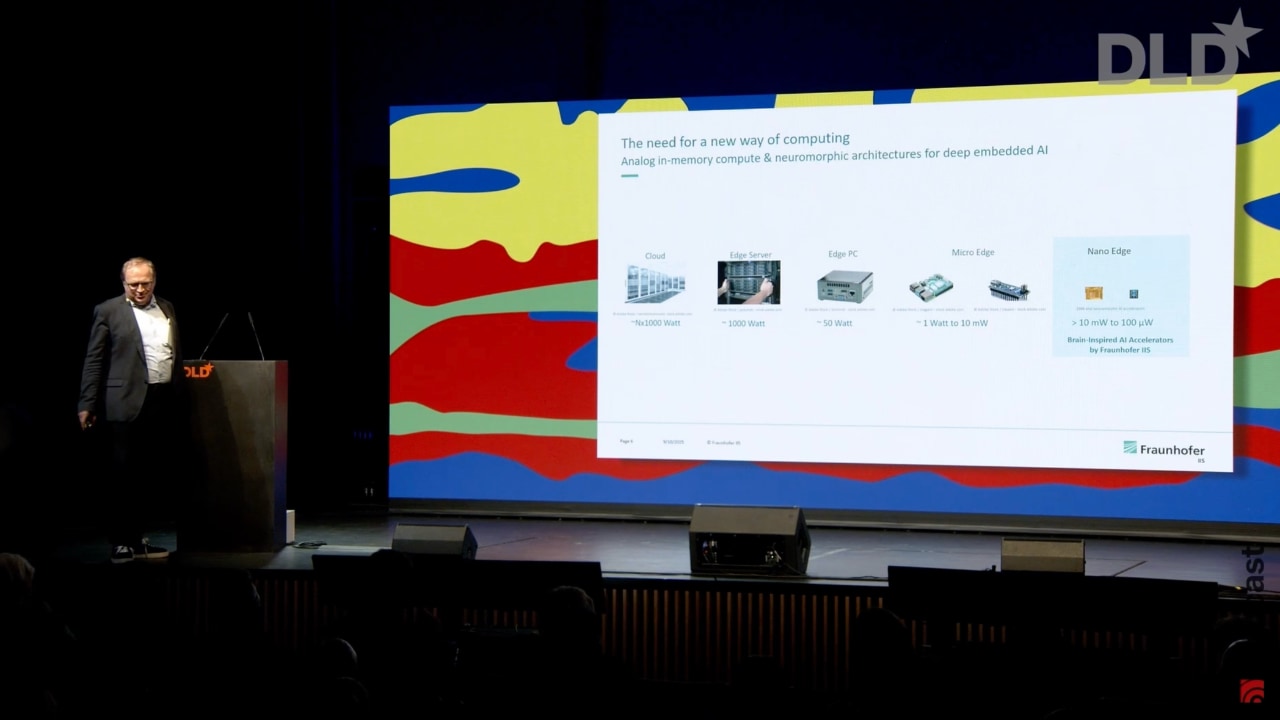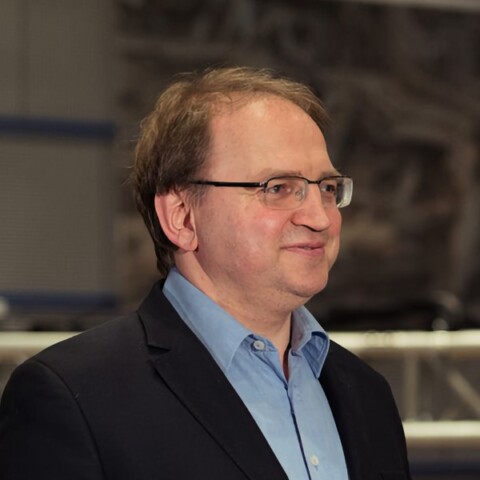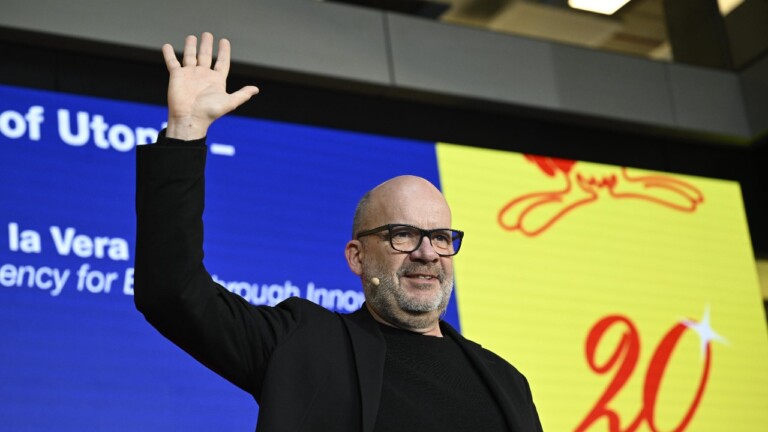Just as small, efficient devices revolutionized computing in the past, AI will follow a similar trajectory, moving from massive data centers to ubiquitous local processing, Bernhard Grill, an inventor of MP3, predicts in his engaging DLD Future Hub presentation.
“There was an expectation in the 1950s that the world would be ruled by very big computers”, Grill notes. “Now we are talking big AI models” that require billions of dollars in investment, “huge data centers and even their own power plants.”
The Fraunhofer researcher draws a compelling parallel to the development of MP3. When his team began to work on audio compression in 1987, computers were “around a hundred thousand times weaker” than today. Philips told the development team that “MP3 is so complex that it will never be on a consumer device”, Grill recalls.
Just a couple of years later the technology started to revolutionize digital music. This historical perspective suggests to Grill that current assumptions about AI requiring massive infrastructure may be similarly shortsighted.
At Fraunhofer IIS, Grill’s team of 400 people now works on AI technologies models specifically designed for efficiency, with speech processing models ranging from 1 to 5 million parameters capable of real-time operation, and video models at 60 million parameters, he explains.
Watch the video for further details, and to catch a glimpse of the future of AI.



